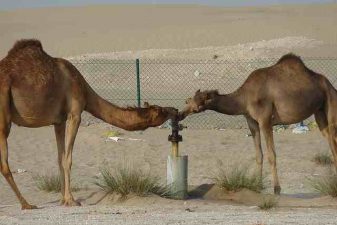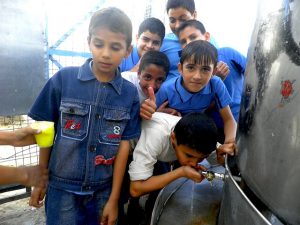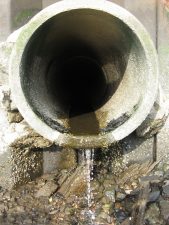 Omani scientists have discovered that date palm leaves – the bamboo of the Middle East – can be used to scrub the pernicious pharmaceuticals from hospital wastewater that most conventional sewage treatment plants are unable to process.
Omani scientists have discovered that date palm leaves – the bamboo of the Middle East – can be used to scrub the pernicious pharmaceuticals from hospital wastewater that most conventional sewage treatment plants are unable to process.
The chemists from Sultan Qaboos University (SQU) claim that wasted date palm leaves treated with sulphuric acid at incredibly high temperatures can purify highly polluted water so effectively that it can thereafter be used to irrigate crops. A pilot plant will be inaugurated in Oman early 2013, but skeptics worry that the status quo will interrupt any kind of widespread implementation of this new technology.
Scientists working at the analytical and environmental research group at SQU’s chemistry department have been working on an alternative wastewater treatment plant that can remove microorganisms and pharmaceutical chemicals from hospital water before it is released into the main sewage lines, according to Scidev.net.
Using hydrated carbon to treat contaminated water could have multiple benefits.
In addition to cleaning up the water purification process, which often involves “activated carbon” derived from charcoal cooked at high temperatures – a process that emits harmful greenhouse gases, hundreds of thousands of pounds of wasted date palm leaves can be put to good use.
And then there’s the obvious benefit of giving laced water a really good clean before releasing it back into the hydrological cycle.
While most states have done little to rectify the problem, conventional wastewater treatment plants are known to be ineffectual at removing certain chemicals from sewage water.
A recent study showed that treated water in Cyprus tested positive for cocaine, benzoylecgonine (a major metabolite of cocaine), heroine, methadone and a host of other chemicals – and this is a global phenomenon.
Other progressive organizations throughout the globe have integrated constructed wetland purification systems to treat waste water, and the results have been great, but the Omani solution can be easily incorporated throughout the Middle East and North Africa, where the date palm is so ubiquitous.
Nonetheless, some researchers are less optimistic that Oman will pick up the baton so easily.
“Even if the pilot-scale experiments provide positive results, it is very difficult for the industrial sector in our region to adopt and commercialise this technology, compared with the available and tested technologies on the market,” Mahad Baawain, assistant professor of environmental engineering at SQU, told Scidev.net.
But El-Said El-Shafey, the project’s principal researcher, has been perfecting dehydrated carbon treatment solutions for more than a decade. It doesn’t sound like he’ll be so easily deterred.
:: Scidev.net
Image of date palm leaves in Egypt via Tafline Laylin



